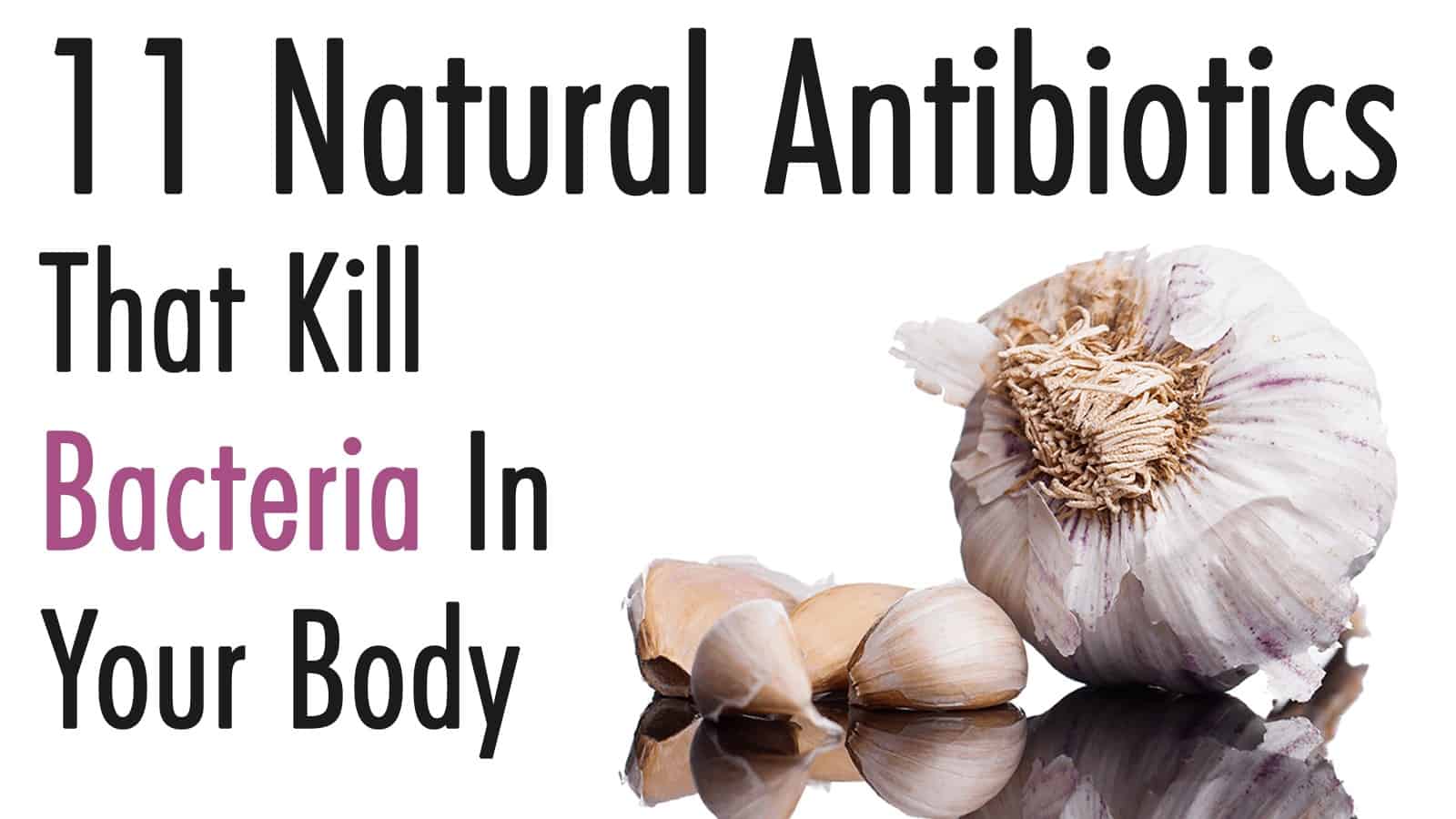Not too long ago, medicine looked a lot different. Our ancestors had to rely on the land to provide antibiotics and natural cures, yet today we can walk into a doctor’s office and walk out with a prescription. While we can thank modern medicine for rapidly increasing the human lifespan (no small feat!), there is still a place for natural cures.
In this article, we’ll discuss 11 of nature’s most useful antibiotics.
1. Garlic & Onion
Garlic and onion share common medicinal properties. Both also contain natural antifungal, antibacterial, and anti-cancer agents. According to the journal publication Pharmacognosy Reviews, “At the time when antibiotics and other pharmacy products did not exist, a bulb of garlic itself represented a whole pharmacy industry due to the broad spectrum of effects.”
2. Ginger Root
Ginger, an incredibly versatile plant, can be eaten fresh, powdered, or dried as a spice. You can also consume it as an extract, oil, capsule, lozenge, or tincture. Ginger helps relieve nausea, loss of appetite, and motion sickness. As an antibiotic, ginger is a potent anti-inflammatory and a decent general-purpose pain reliever.
3. Coconut Oil
Speaking of versatility, consider coconut – or in this case, coconut oil. It is a natural antibiotic that helps cure coughs, candida, inflammation, and even warts. Due to its antimicrobial properties, coconut oil can also prevent harmful pathogens from entering your digestive system. Coconut oil is also a good antibiotic because of its antiviral and antifungal properties.
4. Apple Cider Vinegar
You might consider Apple Cider Vinegar (ACV) the most popular item on this list – and for a good reason. Containing acetic acid, ACV is one potent anti-inflammatory. It helps reduce the symptoms of many conditions, including acne, arthritis, and gout. Besides helping ease pain, ACV also provides a good dose of probiotics.
5. Honey
Winnie The Pooh’s favorite food also happens to be an excellent antibacterial. Honey contains hydrogen peroxide, the stuff our parents loved to splash on our cuts (to our dismay!). Also related, research shows that common honey kills over 60 different types of bacteria. Additionally, honey serves as an excellent alternative treatment for wound care.
6. Grapefruit Seed Extract
The use of grapefruit seed extract goes all the way back to the 16th century. At this time, it treated gastrointestinal (GI) tract infections. Besides its natural antibacterial properties, GSE helps boost circulation, reduce joint inflammation, and protect our skin from UV damage.
7. Oil of Oregano
Oil of oregano has anti-inflammatory, antiviral, and antifungal properties. If added to nature’s medicine cabinet, “Triple-O” can treat the common cold, infections, and parasites. Taking oil of oregano as a supplement may help protect the skin against harmful bacteria.
8. Cloves
Massive research efforts are underway to discover cloves’ relatively newfound medical properties. A particular area of interest to scientists is using the spice to maintain and improve oral health. Studies show that cloves effectively kill off bacteria, gingivitis, and plaque, which may help reduce inflammation of the gums. In one study, a homemade mouth rinse consisting of clove, basil, and tea tree oil killed a greater number of oral bacteria than store-bought mouth rinse!
9. Thyme
Thyme, an essential oil, is commonly used in many commercial household cleaners – that’s how powerful this stuff is. Health-wise, thyme is a natural antiseptic and antimicrobial agent. It can even be used to prevent skin conditions such as acne and eczema. Because of its potency, thyme should be diluted with coconut or olive oil before applying to the skin.
10. Echinacea
A sunflower family member, echinacea flower works as one of the best natural antibiotics for the common cold. Studies show that using flower supplements can reduce the severity of cold symptoms by up to 50 percent. Other natural antibiotic uses include: ear infections, athlete’s foot, sinus infections, and hay fever.
















